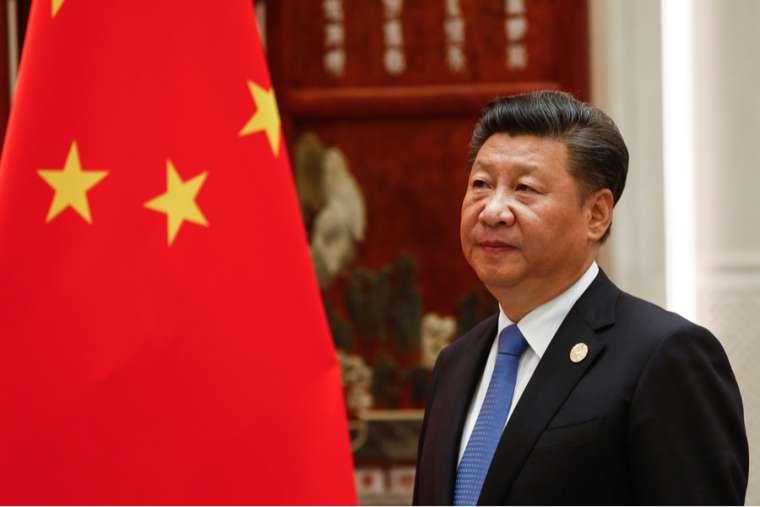US Commission: Vatican-China deal should focus on religious freedom

Religious freedom must be the result of any renewed Vatican agreement with China, the U.S. Commission on International Religious Freedom emphasized on Tuesday, noting that underground Catholics in the country remained “persecuted.”
On Monday, Sept. 14, the Vatican’s Secretary of State Cardinal Pietro Parolin said that a renewal of the Holy See’s 2018 deal with China on the appointment of bishops was likely and would help “normalize the life of the Church” there.
In response, Gary Bauer—a commissioner with USCIRF, a bipartisan federal advisory body—warned Tuesday that the persecution of underground Catholics by the Chinese Communist Party (CCP) must stop if the Vatican-China deal is renewed.
"Communist China continues to persecute Chinese Catholics. USCIRF hopes any future deal between the Vatican and China is rooted in the protection of religious freedom,” the commission’s Twitter account stated on Tuesday, quoting Bauer and citing Cardinal Parolin’s comments.
The agreement between the Holy See and China was signed on Sept. 22, 2018, and is set to expire in October. The agreement was pursued by the Vatican as a means to unify the Church in China and support the appointment of bishops.
Although text of the arrangement was not released to the public, it has been widely reported that the Chinese Communist Party was given an ability to weigh in on episcopal appointments for the Church in China.
Vatican officials have recently expressed optimism and support for a renewal of the agreement. Parolin said on Monday that the Vatican intends “that [the deal] be prolonged, that we continue to adopt it ad experimentum,” as reported by the Italian news agency AgenSIR.
Catholics in China have long been divided between underground Catholics who remained in full communion with Rome and whose bishops were frequently not acknowledged by the CCP, and members of the Chinese Patriotic Catholic Association (CPCA), the state-sanctioned church. After the deal was reached in 2018, eight illicitly-ordained bishops of the CPCA were then recognized by the Holy See.
Two underground Catholic bishops were also recognized by the CCP and installed in June.
However, there have been reports of ongoing harassment of other underground Catholics and bishops in China since the deal was signed, despite Vatican guidance respecting the choice of underground Catholics, including clergy bishops, who refuse to register with the government and sign documents acknowledging the CCP ideology of sinicization. Many underground Catholics and bishops have reportedly been reluctant to register with the CPCA.
USCIRF, in its most recent annual report, said that persecution of religions in China worsened in 2019.
“Local authorities continued to harass and detain bishops, including Guo Xijin and Cui Tai, who refused to join the state-affiliated Catholic association,” the commission reported, adding that “[m]ost of the country’s estimated 70 million Christians refuse to join the state-run churches” including the CPCA. There have also been reports of churches being demolished or crosses being removed.
Another reported tension has been that of a lack of episcopal appointments in the mainland; there are currently more than 50 Catholic dioceses in China that do not have sitting bishops, and candidates who have been appointed are past the Church’s retirement age of 75.
Vatican sources have reported silence from Beijing in response to lists of episcopal candidates, and in response to reports of missing priests.
In July, U.S. congressional leaders held a hearing which highlighted the persecution of Chinese Catholics and the disappearance of a bishop.
Bishop James Su Zhimin of the Diocese of Baoding, in China’s Hebei province, was arrested by Chinese authorities in 1997. He was last seen by family at a hospital in 2003 while he was in government custody.
“President Xi Jinping: Where is Bishop Su, and what have you done to him?” Rep. Chris Smith (R-N.J.), co-chair of the commission, asked in his opening remarks of a July 30 hearing of the bipartisan Congressional Tom Lantos Human Rights Commission.
According to Bishop Su’s nephew, Chinese officials have reportedly asked the Vatican to appoint a new bishop of Baoding, UCA News reported on July 22. Their preferred candidate is Coadjutor Bishop Francis An Shuxi, a member of the Chinese Catholic Patriotic Association, the state-sanctioned church.
The 2018 Vatican-China agreement, which ceded a measure of control over episcopal appointments in China to the Communist government, is set to expire in the coming weeks. Negotiations to extend that deal could determine the nomination of Su’s successor and influence the current treatment of Catholics in China, both on the mainland and in Hong Kong, where the imposition of a National Security Law in July has led to crackdowns on free speech and warnings from the local diocese to Catholic schools and clergy to avoid contentious political issues.
According to a report, released July 28, a Chinese state-sponsored group has targeted the Vatican and other Catholic organizations with cyberattacks to gain an advantage in negotiations and monitor the Holy See’s communications with the Diocese of Hong Kong. - Catholic News Agency
Radio Veritas Asia (RVA), a media platform of the Catholic Church, aims to share Christ. RVA started in 1969 as a continental Catholic radio station to serve Asian countries in their respective local language, thus earning the tag “the Voice of Asian Christianity.” Responding to the emerging context, RVA embraced media platforms to connect with the global Asian audience via its 21 language websites and various social media platforms.














